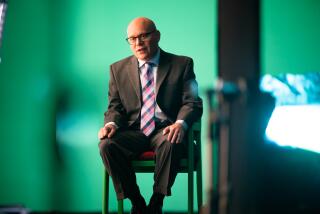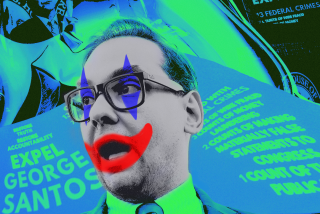Crossing the line
- Share via
“THERE’S a series of stories we tell ourselves,” writes Jeremy Waldron in his foreword to Colin Dayan’s “The Story of Cruel and Unusual” (Boston Review Books/MIT Press: 100 pp., $14.95), to make us feel better “about the shameful use of torture by American soldiers and intelligence operatives” in places like Guantanamo and Abu Ghraib. Yet such stories, this incendiary little book tells us, are just fictions that mask who we really are.
Oppression, Dayan argues, is built into the fiber of our identity, beginning with the 8th Amendment to the Constitution, which outlaws cruel and unusual punishment. That’s a provocative idea, since over the centuries, most Americans -- myself included -- have held this phrase up as a beacon, an expression of our decency. For Dayan, however, the 8th Amendment is a paradox, justifying excessive treatment by the very act of setting a standard for what is and what is not acceptable.
Dayan, a professor of humanities at Vanderbilt University in Nashville, builds her argument around one basic principle: that in a society of laws, we frame cruelty in terms of intent. Thus, she writes, we always have a loophole; it’s not what we do but what we mean.
Here, we have the logic behind not only Abu Ghraib but also high-security prisons where inmates can be kept in their cells for up to 23 hours a day. Dayan roots this dichotomy in the American sin of slavery, whose “twisted logic” has “always done something pernicious to the language of punishment.”
The problem, she suggests, is that the concept is elusive. “[F]rom the beginning, the phrase has been vexed by ambiguity. Unlike due process, the business of cruel and unusual punishment does not have a history so much as a compulsive repetition; its jurisprudence cycles interminably between two poles: safeguarding rights and justifying their revocation.”
The argument may be somewhat overstated, but with its implicit sense that cruel and unusual punishment is an ever-shifting standard, it can’t help but raise compelling questions, forcing us to reconsider our founding documents and what they say about us.
David L. Ulin
More to Read
Sign up for our Book Club newsletter
Get the latest news, events and more from the Los Angeles Times Book Club, and help us get L.A. reading and talking.
You may occasionally receive promotional content from the Los Angeles Times.











